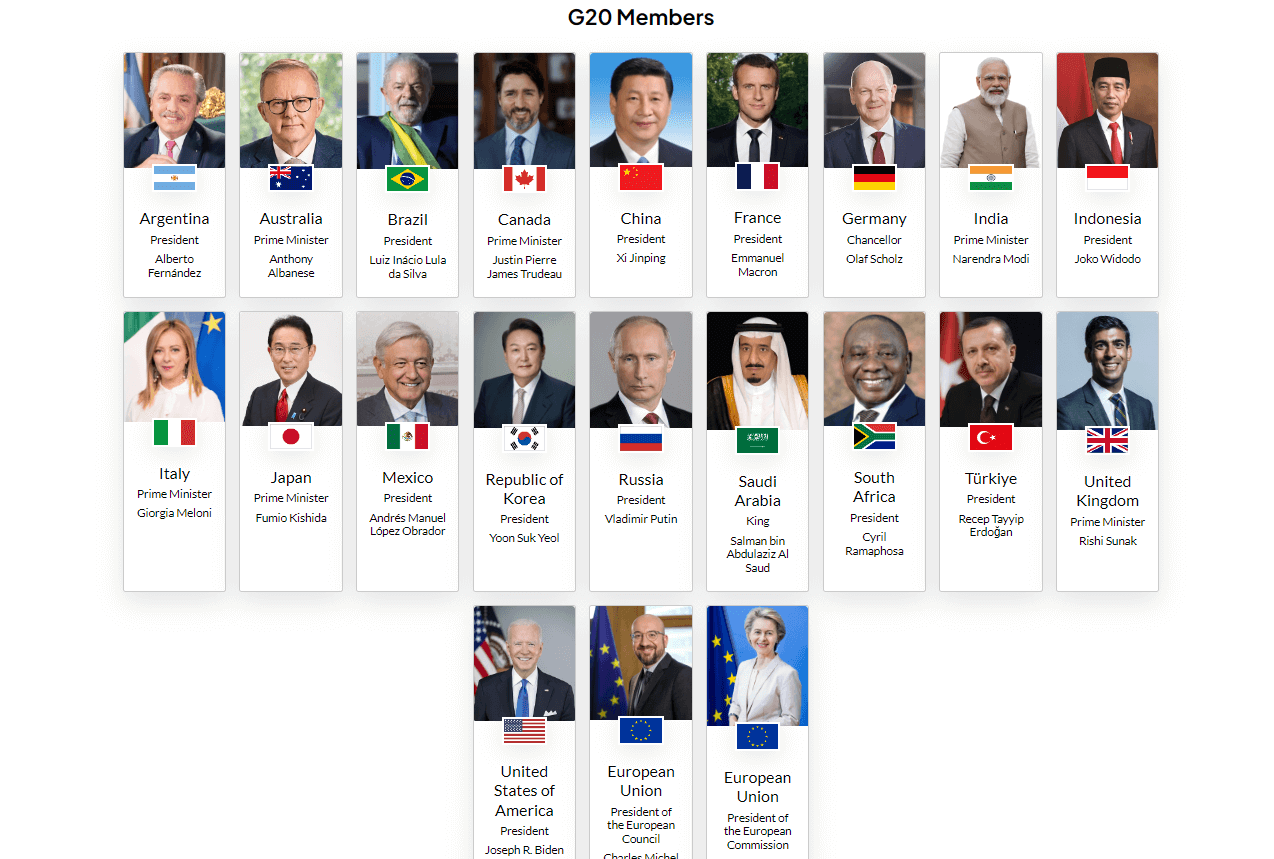The G20, an international forum for governments and central bank governors from 19 countries and the European Union, plays a significant role in addressing global economic challenges. The 18th G20 Heads of State and Government Summit, set to take place in New Delhi, stands as the pinnacle of a year-long series of meetings and discussions. This gathering will bring together leaders to deliberate on crucial global issues and chart a course for collective action.
Table of Contents
- Introduction
- The Evolution of G20 Summits
- The Significance of the 18th G20 Summit
- Key Focus Areas
- Economic Resilience
- Sustainable Development
- Digital Transformation
- Global Health
- Leaders’ Declaration and Commitments
- Collaboration Amongst Diverse Stakeholders
- Preparatory Meetings and Ministerial Discussions
- Civil Society Engagement
- Global Impact and Outreach
- The Role of New Delhi
- Challenges and Opportunities
- Ensuring Implementation and Accountability
- Conclusion
- FAQs
- What is the G20?
- How are the summit topics determined?
- What is the significance of the Leaders’ Declaration?
- How does the G20 engage with civil society?
- What role does New Delhi play in hosting the summit?
Introduction
The G20 summit, an annual event, brings together leaders from the world’s largest economies to discuss pressing global challenges. The 18th G20 Heads of State and Government Summit, scheduled to be held in New Delhi, will cap off a year of intense dialogues and deliberations. This article delves into the importance of this summit and its potential impact on global governance.
The Evolution of G20 Summits
Since its inception in 1999, the G20 has grown to become a pivotal platform for fostering international economic cooperation. What initially started as a response to financial crises has evolved into a comprehensive forum that addresses a range of issues beyond the economy.
The Significance of the 18th G20 Summit
The 18th G20 Summit holds paramount importance due to its role as a culmination of extensive discussions held throughout the year. It offers a unique opportunity for world leaders to collectively determine strategic priorities and collaborative actions.
Key Focus Areas
Economic Resilience
In a rapidly changing economic landscape, building resilience against shocks and uncertainties remains a central concern. Leaders will deliberate on strategies to enhance global economic stability and strengthen financial systems.
Sustainable Development
Promoting sustainable and inclusive growth is a critical objective of the G20. The summit will address key issues such as climate change, poverty eradication, and gender equality, acknowledging the interconnectedness of these challenges.
Digital Transformation
The digital age presents both opportunities and challenges. Discussions will revolve around fostering digital infrastructure, ensuring cybersecurity, and harnessing technology to drive economic progress.
Global Health
The ongoing COVID-19 pandemic underscores the importance of global health cooperation. The summit will explore ways to enhance pandemic preparedness, ensure equitable vaccine distribution, and strengthen healthcare systems worldwide.
Leaders’ Declaration and Commitments
At the conclusion of the New Delhi Summit, leaders will adopt a comprehensive declaration outlining their commitment to the discussed priorities. This declaration serves as a roadmap for international collaboration and policy implementation.
Collaboration Amongst Diverse Stakeholders
The G20 engages not only leaders but also international organizations, businesses, and civil society. This broad participation fosters holistic and effective solutions to global challenges.
Preparatory Meetings and Ministerial Discussions
The road to the summit involves a series of ministerial meetings and working group discussions. These sessions lay the groundwork for informed and constructive conversations among leaders.
Civil Society Engagement
Recognizing the importance of public participation, the G20 engages with civil society organizations. This engagement enhances transparency and accountability in the decision-making process.
Global Impact and Outreach
Decisions made at the G20 summit have far-reaching implications beyond member states. The outcomes influence global policies and actions, affecting economies and societies worldwide.
The Role of New Delhi
As the host city, New Delhi plays a pivotal role in facilitating the summit’s success. It provides a platform for cultural exchange, diplomacy, and showcasing India’s progress on the global stage.
Challenges and Opportunities
The diverse interests of member states can pose challenges to consensus-building. However, these differences also offer opportunities for creative solutions and cooperation.
Ensuring Implementation and Accountability
The effectiveness of the G20 lies in its ability to turn commitments into concrete actions. Monitoring and accountability mechanisms play a crucial role in ensuring follow-through on agreed-upon initiatives.
Conclusion
The 18th G20 Heads of State and Government Summit in New Delhi signifies more than just a gathering of leaders. It symbolizes a shared commitment to addressing the most pressing global challenges through collaborative action. By fostering discussions, forging partnerships, and shaping policies, the summit embodies the spirit of multilateralism in an interconnected world.
FAQs
- What is the G20? The G20 is a forum comprising 19 major economies and the European Union, focused on international economic cooperation.
- How are the summit topics determined? Summit topics are identified through a year-long process of consultations, ministerial meetings, and working group discussions.
- What is the significance of the Leaders’ Declaration? The Leaders’ Declaration outlines the collective commitment of member states to address global challenges and implement collaborative solutions.
- How does the G20 engage with civil society? The G20 recognizes the importance of civil society and holds dialogues with non-governmental organizations to ensure a diverse range of perspectives.
- What role does New Delhi play in hosting the summit? New Delhi serves as the host city, providing the venue for discussions, cultural exchange, and diplomatic interactions among global leaders.
Also Read –


